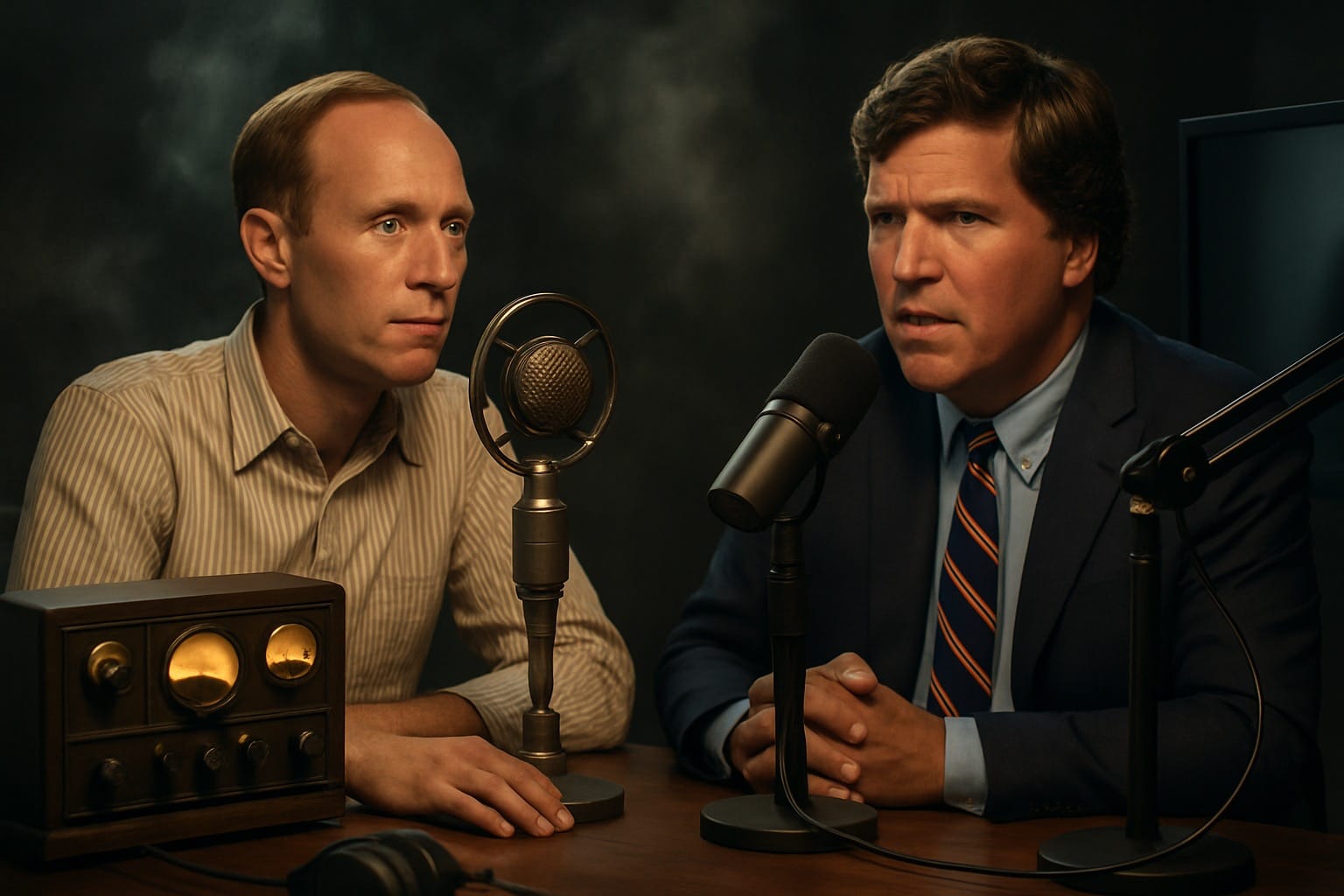Tucker Carlson’s Moscow media tour has revived a ghost from Britain’s darkest hours—William “Lord Haw-Haw” Joyce—and the parallels are as unsettling as they are instructive.

In early 2024 Carlson posted glossy footage from Moscow’s grocery aisles, marveling at “spotless shelves” and “affordable food,” before crowning Russia “in many ways a freer place than the United States right now”. These clips dominated MAGA social feeds, stripped of context about censorship, political prisoners, or the war in Ukraine. For viewers nursing grievances against “woke America,” the message landed like an invitation: the Kremlin, not Washington, upholds real freedom and Christian values.
Lord Haw-Haw’s Wartime Script
Eight decades earlier William Joyce beamed Nazi propaganda into British homes, needling listeners with tales of German efficiency while sneering at “decadent” London. His broadcasts urged demoralized Brits to question their country’s war effort and consider the supposed orderliness of Hitler’s Reich. Joyce was eventually captured, tried, and hanged for treason in 1946.
Why the Comparison Sticks
Both men are native-born anglophones using enemy-friendly megaphones to tell their own people that a hostile power governs better. Joyce romanticized Nazi order; Carlson romanticizes Putin’s “tradition.” Each glosses over brutality—Gestapo cells then, FSB crackdowns now—to peddle a political fantasy. The technology changed—short-wave radio versus viral clips—but the rhetorical playbook is the same: degrade your homeland, exalt the foe, and let grievance do the rest.
Treason, Legally and Morally
Joyce broadcast during a formal state of war, so the law called it treason. Carlson enjoys First-Amendment insulation because the United States hasn’t declared war on Russia. Yet morality doesn’t wait for a declaration. When a pundit’s reveries help lure families like the Huffmans into an authoritarian cul-de-sac—and whitewash a regime bombarding Ukraine—he is wielding the same poisoned microphone Joyce once held. The gallows aren’t in Carlson’s future, but history’s verdict on collaborators is never kind.
The Danger of the Echo
Russian state outlets now replay Carlson’s clips back into American timelines, stamped “As even U.S. media admits…,” laundering Kremlin talking points through an “all-American” face. Algorithmic amplification turns one cable host’s infatuation into a propaganda force multiplier—exactly what Nazi radio hoped Joyce would achieve with British accents over Berlin airwaves.
Bottom Line
Carlson may see himself as a gadfly poking Washington. In practice he is Lord Haw-Haw in loafers, selling a Potemkin paradise while political prisoners rot a subway ride away. The medium has evolved; the moral stench is timeless.
